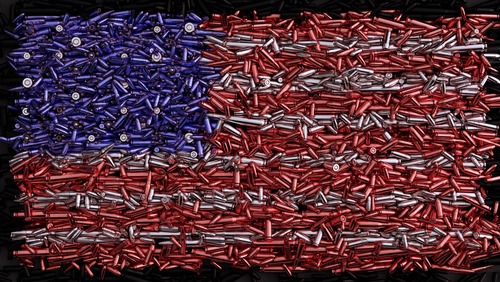
A bipartisan group of senators revealed a limited agreement for gun safety legislation on June 12, in an effort to reform American gun laws in the wake of a series of mass shootings across the country,
While numerous Democrats supported the bill, 10 Republicans backed it as well, promising the potential to break years of gridlock on what has proved one of the most divisive issues in American politics. With its 10 conservative proponents, the bill could overcome a Senate filibuster.
“Today, we are announcing a commonsense, bipartisan proposal to protect America’s children, keep our schools safe, and reduce the threat of violence across our country,” the lawmakers wrote. “Families are scared, and it is our duty to come together and get something done that will help restore their sense of safety and security in their communities. Our plan increases needed mental health resources, improves school safety and support for students, and helps ensure dangerous criminals, and those who are adjudicated as mentally ill can’t purchase weapons. Most importantly, our plan saves lives while also protecting the constitutional rights of law-abiding Americans. We look forward to earning broad, bipartisan support and passing our commonsense proposal into law.”
While its specifics remain under debate, it pushed a framework of fundamental reforms. President Joe Biden had asked for tougher reforms, such as an assault weapons ban and higher age limits for purchase, but Republicans, often arguing Second Amendment protections, have traditionally claimed such provisions as overreach.
“It does not do everything that I think is needed, but it reflects important steps in the right direction and would be the most significant gun safety legislation to pass Congress in decades,” Biden said after news of the proposal broke.
Reforms proposed by the bipartisan group of senators included:
- Financial support for states and Tribes to create and manage laws to keep weapons away from those a court has deemed a danger to themselves or others
- Expansion of national community mental health services for children and family, from crisis and trauma intervention to suicide prevention, as well as school-based programs for mental health and supportive services
- Adding convicted domestic violence abusers and those with domestic violence restraining orders to the National Instant Criminal Background Check System (NICS), including closing a “boyfriend loophole” usually opposed by the National Rifle Association (NRA)
- Clarifying definitions of federally licensed firearms dealers to make it harder to evade licensing requirements
- Increased penalties for trafficking and straw purchases: people buying guns for those often unable or unwilling to purchase one themselves
- Greater funding for school safety measures at primary and secondary schools, including violence prevention efforts and training for school personnel and students
- Telehealth investments to increase mental and behavioral health service access
- Enhanced review process for gun buyers under 21 years old, mandating an investigative period to review juvenile and mental health records, as well as state and local law enforcement databases
Notably, the proposal would not ban the military-style assault weapons that have factored into many of the mass shootings of recent years, nor would it change the age at which people can purchase guns in the United States. Further, it includes no expansion of background checks for firearm sales or transfers, which are not even required for unlicensed and private sellers.
According to the nonprofit research group known as Gun Violence Archive, there have been more than 250 mass shootings in the United States this year.
“If the framework announced today gets enacted into law, it will be the most significant piece of gun safety legislation to make it through Congress in 26 long and deadly years,” John Feinblatt, president of Everytown for Gun Safety, said.
No statement has yet come from the NRA, which tends to oppose any measure to restrict guns in the United States.
Supporters behind the new proposal include U.S. Sens. Chris Murphy (D-CT), John Cornyn (R-TX), Thom Tillis (R-NC), Kyrsten Sinema (D-AZ), Richard Blumenthal (D-CT), Roy Blunt (R-MO), Cory Booker (D- NJ), Richard Burr (R-NC), Bill Cassidy (R-LA), Susan Collins (R-ME), Chris Coons (D-DE), Lindsey Graham (R-SC), Martin Heinrich (D-NM), Mark Kelly (D-AZ), Angus King (I-ME), Joe Manchin (D-WV), Rob Portman (R-OH), Mitt Romney (R-UT), Debbie Stabenow (D-MI) and Pat Toomey (R-PA).




